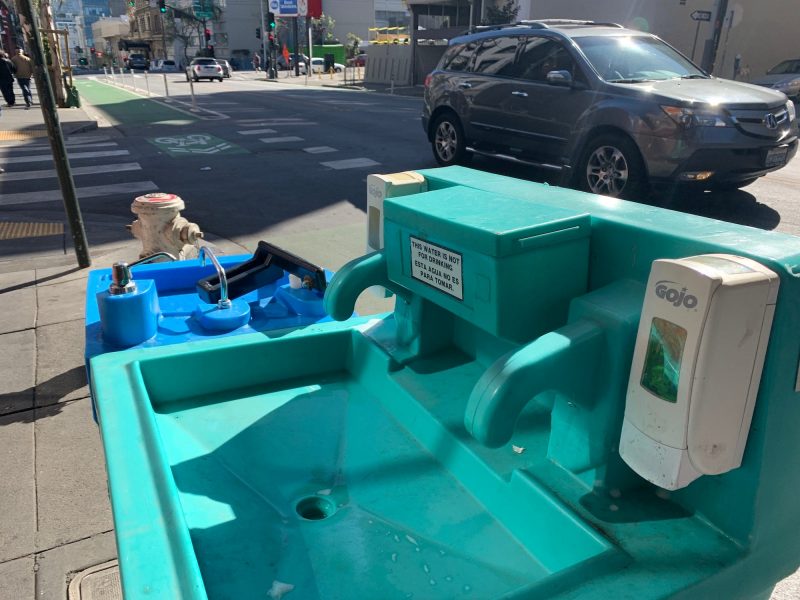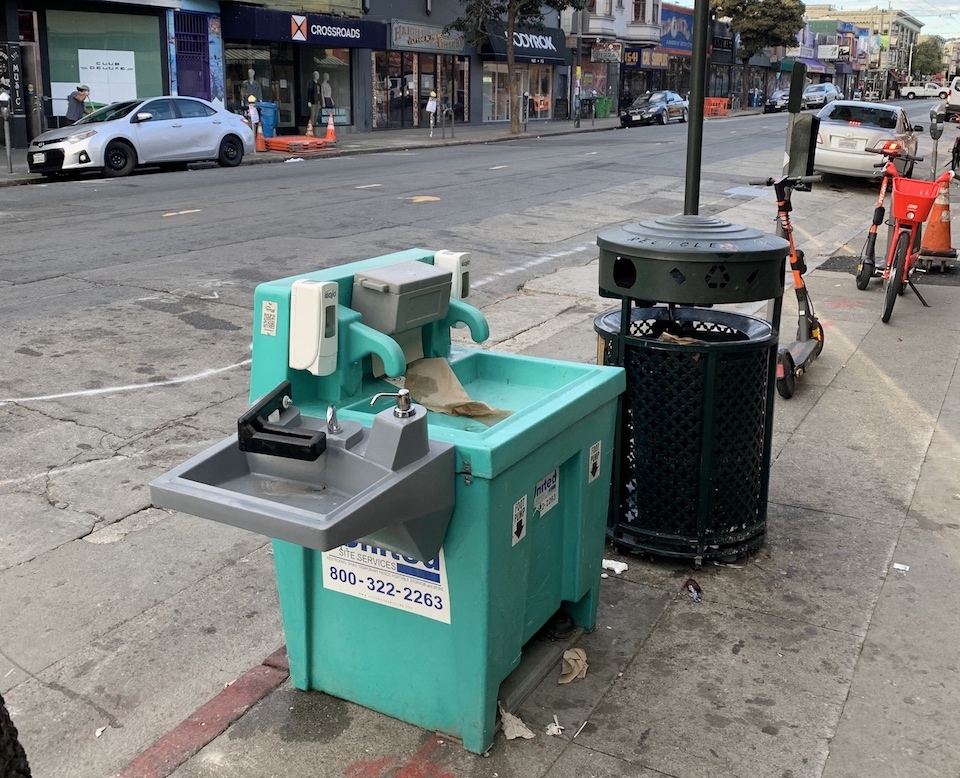
- Inspiring People -
- 5mins -
- 257 views
San Francisco introduces public hand-washing stations to help combat spread of coronavirus
San Francisco has placed 20 public hand-washing stations throughout the city in a bid to tackle the spread of COVID-19, meanwhile civic leaders across the US are rushing to get the nation’s vulnerable homeless off the streets.
Hand-washing stations part of latest measures taken by San Francisco amid coronavirus outbreak
San Francisco has placed 20 handwashing stations throughout the city in an effort to fight the spread of the coronavirus disease. The new stations are one of the latest measures taken by the city amid a coronavirus outbreak there. Afraid that the coronavirus could race through the homeless population and pose a threat to the entire community, the city announced on Tuesday that it will use RVs to quarantine those who test positive for the virus or who have been exposed to it and are living on the streets, in shelters, and in single room occupancy (SROs). The city also announced that it’s spending $5 million to deep-cleanse the city’s homeless shelters, SROs, and supportive housing buildings in an effort to protect members of its homeless population.

San Francisco hopes protecting the homeless will protect the whole society
In an effort to make hand-washing easier for San Francisco residents, city leaders have deployed mobile hand-washing stations throughout the city. An online map shows where each one is located. Shared living facilities and shelters are receiving additional stations, too.
The hand-washing stations are one of a range of measures to prevent the spread of the virus throughout the city. The Department of Public Health has also deployed leased recreational vehicles (RVs) to provide quarantine spaces for unhoused individuals or shelter residents that have COVID-19 symptoms or have been exposed.
The accessibility to soap and water is a necessity for the city’s most vulnerable residents that comprise the homeless population. There are signs on the stations stating that the water is not potable. The city also announced this week that it is spending $5 million to deep-clean the city’s homeless shelters, SROs, and supportive housing buildings in an effort to protect members of its homeless population.
Sources: BusinessInsider/Hoodline

Cities lease recreational vehicles and hotel rooms as temporary quarantine units
San Francisco’s inability to house its 8,000 homeless people may pose a threat to the entire community. — reported Bloomberg on Monday.
Afraid that the coronavirus could race through the homeless population and overwhelm local hospitals, city leaders are rushing to get San Francisco’s most destitute off the streets. The city has leased trailers and hotel rooms to quarantine homeless people showing signs of infection. It’s also moving some of the 2,000 people in its shelters to new locations throughout the city so they aren’t crowded together.
The same frantic dash is happening across California and in other places, such as New York City, where homelessness has surged. The virus thrives on close contact and poor hygiene, and it hits hardest people whose health has already been compromised.
“In simple terms, they are the ones who disproportionately could die as a result of this crisis,” said Los Angeles Mayor Eric Garcetti, announcing an effort to move thousands of homeless people into 42 converted recreation centers across his city.
New York City faces similar pressures but, with roughly 79,000 homeless people, on an even larger scale.
“The shelters have had to switch into emergency mode,” said Christine Quinn, president and chief executive of Win, or Women in Need, which operates 11 shelters across New York City.
California could see more than 60,000 of its estimated 108,000 homeless people infected during the next two months, Governor Gavin Newsom said. Hospitals would struggle to keep up.
The state has rented two hotels near Oakland’s airport to quarantine homeless people who may have the virus, purchased more than 1,300 trailers and is negotiating for 51,000 hotel rooms as quarantine spaces. It has put $50 million into the plan.
Source: Bloomberg

But where to isolate… and will homelessness rise as businesses fail?
This isn’t just a matter of the people on the streets, because some 19,000 San Franciscans live in low-cost hotels with shared cooking spaces and bathrooms, and these people can’t isolate themselves at home even if they need to.
So San Francisco is trying to line up 3,500 hotel rooms it can use at a push to house people who may have the virus and moved its first four homeless people into leased rooms on Thursday, said Trent Rhorer, director of the San Francisco Human Services Agency. Hotels with about 2,000 available rooms have expressed interest, he said.
Tomiquia Moss, founder of the All Home nonprofit group, worries that the virus will cause a new surge in homelessness as nonessential businesses close and low-income Californians already on the financial edge lose their jobs. Cities are imposing bans on evictions during the crisis, but those won’t last forever.
“We have been saying before the coronavirus that the homelessness you see right now is just the tip of the iceberg,” Moss said.
Source: Bloomberg

Many hand-washing stations already missing or broken
Barely a week after city leaders installed the emergency hand-washing stations across the city to slow the spread of the coronavirus among the homeless, and the San Francisco Public Press reported that many of those stations were missing or had fallen into disrepair. Officials blamed the deteriorated facilities on overuse as public health measures took effect and said the contractor in charge of maintaining the stations had probably placed the missing stations in the wrong locations.
Visits over the last several days to the locations the city mapped out for installing the units revealed that numerous stations were damaged or had non-functioning faucets, empty soap dispensers and sink basins clogged with dirty water. Others were missing from the locations the city has provided online.
A spokesperson for the Department of Homelessness and Supportive Housing said the department was working with the company that owns and maintains the stations to fix those that are broken and locate the missing ones as soon as possible.
Source; SanFranciscoPublicPress

